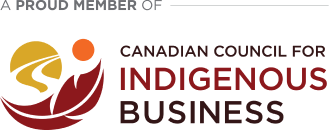Your cart is currently empty!

ISO 16075:2020
ISO 16075:2020 Guidelines for treated wastewater use for irrigation projects – Part 1: The basis of a reuse project for irrigation
CDN $273.00
Description
This document contains guidelines for the development and the execution of projects intending to use treated wastewater (TWW) for irrigation and considers the parameters of climate and soil.
The purpose of this document is to provide guidance on all elements of a project using TWW for unrestricted and restricted irrigation, including design, materials, construction, and performance, when used for the following:
– irrigation of agricultural crops;
– irrigation of public and private gardens and landscape areas, including parks, sport fields, golf courses, cemeteries, etc.
These guidelines are intended to provide assistance for the benefit of users of TWW for irrigation. The guidelines relate to the widespread and common ranges of water quality rather than exceptional or unique ones and are intended for the use of professionals, such as irrigation companies (designers and operators), agricultural extension officers or advisors, water companies (designers and operators), local authorities and water utilities. The use of these guidelines by users might require additional specifications.
None of the parts of this document are intended to be used for certification purposes.
These guidelines suggest the parameters of TWW quality. These parameters include the following:
– agronomic parameters: nutrients (nitrogen, phosphorus and potassium), salinity factors (total salt content, chloride, boron, and sodium concentration) and heavy metals’ concentration;
– pathogen presence.
Each of these parameters can have possible impacts on the crops, soil, and public health. The guidelines discuss the possibility of preventing the contaminants’ addition during wastewater production and the ability to remove them during the course of treatment.
Contaminants of emerging concern (such as pharmaceuticals and personal care product residuals) are outside the scope of this document since up to day, there is no evidence of adverse effects on human health or environment via irrigation with TWW or via the consumption of crops irrigated with TWW.
The project should be designed in accordance with the sanitary quality of the TWW in order to avoid disease transmission by the pathogens in the water.
The use of these guidelines is encouraged to ensure consistency within any organization engaged in the use of treated wastewater.
These guidelines provide the basis for a healthy, hydrological, environmental and agronomic conscious design, operation, monitoring, and maintenance of an irrigation system using treated wastewater.
Edition
2
Published Date
2020-11-30
Status
PUBLISHED
Pages
32
Format 
Secure PDF
Secure – PDF details
- Save your file locally or view it via a web viewer
- Viewing permissions are restricted exclusively to the purchaser
- Device limits - 3
- Printing – Enabled only to print (1) copy
See more about our Environmental Commitment
Abstract
This document contains guidelines for the development and the execution of projects intending to use treated wastewater (TWW) for irrigation and considers the parameters of climate and soil.
The purpose of this document is to provide guidance on all elements of a project using TWW for unrestricted and restricted irrigation, including design, materials, construction, and performance, when used for the following:
- irrigation of agricultural crops;
- irrigation of public and private gardens and landscape areas, including parks, sport fields, golf courses, cemeteries, etc.
These guidelines are intended to provide assistance for the benefit of users of TWW for irrigation. The guidelines relate to the widespread and common ranges of water quality rather than exceptional or unique ones and are intended for the use of professionals, such as irrigation companies (designers and operators), agricultural extension officers or advisors, water companies (designers and operators), local authorities and water utilities. The use of these guidelines by users might require additional specifications.
None of the parts of this document are intended to be used for certification purposes.
These guidelines suggest the parameters of TWW quality. These parameters include the following:
- agronomic parameters: nutrients (nitrogen, phosphorus and potassium), salinity factors (total salt content, chloride, boron, and sodium concentration) and heavy metals' concentration;
- pathogen presence.
Each of these parameters can have possible impacts on the crops, soil, and public health. The guidelines discuss the possibility of preventing the contaminants' addition during wastewater production and the ability to remove them during the course of treatment.
Contaminants of emerging concern (such as pharmaceuticals and personal care product residuals) are outside the scope of this document since up to day, there is no evidence of adverse effects on human health or environment via irrigation with TWW or via the consumption of crops irrigated with TWW.
The project should be designed in accordance with the sanitary quality of the TWW in order to avoid disease transmission by the pathogens in the water.
The use of these guidelines is encouraged to ensure consistency within any organization engaged in the use of treated wastewater.
These guidelines provide the basis for a healthy, hydrological, environmental and agronomic conscious design, operation, monitoring, and maintenance of an irrigation system using treated wastewater.
Previous Editions
Can’t find what you are looking for?
Please contact us at:
Related Documents
-

ISO 23070:2020 Water Reuse in Urban Areas – Guidelines for reclaimed water treatment: Design principles of a RO treatment system of municipal wastewater
0 out of 5CDN $233.00 Add to cart -

ISO 14002:2023 Environmental management systems – Guidelines for using ISO 14001 to address environmental aspects and conditions within an environmental topic area – Part 2: Water
0 out of 5CDN $273.00 Add to cart -

ISO 6107:2021 Water quality – Vocabulary
0 out of 5CDN $76.00 Add to cart -

ISO 46001:2019 Water efficiency management systems – Requirements with guidance for use
0 out of 5CDN $312.00 Add to cart






